- Home
- Mike Lupica
Fantasy League Page 4
Fantasy League Read online
Page 4
Anna said, “It used to be more crowded in here the first couple of seasons, even during the preseason. You could see a lot of celebrities doing what they do best: being seen.”
“Like actors at Lakers games,” Charlie said.
Anna nodded.
“Now I think the ones who show up do their best acting when they act as if they really want to be here,” she said.
“Some of them must be real fans.”
“Some of them are. But it’s like my dad says about Hollywood people: Nobody fakes sincerity better than they do.” She made a snorting sound. “Sometimes I see them smiling and waving when the cameras are on them, especially the ones sitting next to my gramps, and want to gag.”
“Hey,” Charlie said, “I thought we agreed we were going to have a positive attitude tonight about our team and everything else? Your mom said if we act happy it will make your grandfather happy.”
Anna stared across the room now at Joe Warren. “I want him to be happy more than anything else in the world.”
It was hard for Charlie to think that Mr. Warren, the owner of the team—Charlie’s team—was anybody’s gramps, even if the people writing about him and talking about him and the team the way they did on the radio always went out of their way to point out what a gentleman he was. Then they’d hammer away at him again, blaming him for the state of the team, saying that nothing would change until he made the changes he needed to make in the front office, which meant firing his son, Matt.
Kevin Fallon’s dad was usually the one leading the charge on his talk show on L.A.’s ESPN station, having taken to calling the Bulldogs’ general manager “Door-Matt” Warren.
Somehow, in some people’s eyes, Anna’s gramps had gone from being a local hero for bringing football back, to being some out-of-it old geezer who acted as if he didn’t care whether the Bulldogs won or lost.
“Anybody who thinks he doesn’t care,” Anna had said on the ride to the game from Culver City, “is dumber than all of the Kardashian sisters combined.”
Charlie had said, “They make a lot of money for dumb people, though, don’t they?”
“Shut up.”
Charlie watched Joe Warren greet each new guest as they came through the door to the suite. He was tall and white-haired, wearing a white shirt, a blue-striped tie, and the same blazer he always seemed to be wearing when you’d see him being interviewed on television. And no matter how tough the questions that were being shouted at him—the reporters acting as if the Bulldogs’ record was happening to them, making them angry—Joe Warren would smile and answer all of them politely and never lose his temper.
He reminded Charlie more of some nice old teacher or minister than the loud owners of some of the other teams—the guys who acted like they were bigger stars than their own players.
“Let’s go rescue him,” Anna said now.
“He seems to be pretty busy being a good host.”
She grinned at him. “Gramps is never too busy for his precious princess.”
“He calls you that?”
“Got a problem?” Anna grabbed Charlie by the arm and the two of them made their way across the suite.
“How’s the world’s handsomest grandfather?” Anna said when they got to him.
“Better now that you’re here,” he said. “We have a beautiful night for football and I’ve got the most beautiful girl on the planet standing next to me, lying about my looks.”
He noticed Charlie now. “How’s the biggest Bulldogs fan doing?”
“Hey!” Anna said.
“Apologies,” Joe Warren said. “What I meant to say is, how’s the biggest boy Bulldogs fan doing?”
“Excited to be here,” Charlie said, shaking his hand and looking him in the eye, the way his mother had taught him.
“You’ll sit on one side of me when the game starts,” Joe Warren said, “and Anna will be on the other. Unless you can find a better date in the next forty-five minutes or so.”
“He couldn’t find one in forty-five years.”
“Do you ever want to mute this young lady the way you do a television set?” Joe Warren said.
“You have no idea,” Charlie said.
“The two of you have no idea,” Anna said, “how lucky you both are to have me.”
“She makes it sound as if we’re in a special club, doesn’t she, Charlie boy?” Joe Warren said.
“Only because she believes it,” Charlie said to him.
Charlie watched Anna’s grandfather shuffle off to greet more guests now. He hadn’t seen him since the last game of last season, and noticed how much older he looked now than he had then, how much slower he seemed to be moving.
“Such a good guy,” Charlie said.
“The best,” Anna said, watching her grandfather smile and take a woman’s hand and kiss it.
The woman said something to Joe Warren. He laughed.
“How old is he?” Charlie said.
“Seventy-nine, but he doesn’t think old and he doesn’t act old. He still thinks every day is going to be the best day of his whole life.”
Charlie thought Anna’s eyes were starting to fill up as she said, “My mom always says that God likes Gramps best. But every time she says that, I ask her if that’s true, how come He won’t give him a better football team?”
Six
“TRUE STORY,” JOE WARREN WAS saying to Charlie and Anna now.
Charlie on his right, Anna on his left. Not a bad game so far, even for the preseason. Not many mistakes, three good drives, and the Bulldogs ahead 14–7 halfway through the second quarter. JJ Guerrero was in at quarterback for Chase Sisk by now, moving the team a lot better than Chase had before his night was over.
“You start out every story by saying ‘true story,’” Anna said.
Joe Warren looked at Charlie. “I assume she’s this much of a know-it-all with you?”
“She doesn’t think her family name is Warren, sir,” Charlie said. “She thinks it’s Google.”
“You should start out by saying ‘good story,’” Anna said. “Because they always are, Gramps.”
Joe Warren rubbed the back of her head.
“See those horns on the side of the Rams’ helmets,” the old man said. “A Rams player back in the day, back when I was a boy, painted horns on his helmet one day in 1948. And people liked the way it looked so much that it became the first team emblem on a helmet in the whole league.”
Even Charlie hadn’t known that.
Down on the field JJ Guerrero scrambled to his right, pulled up, threw a little floater to the tight end for a first down.
“He makes better decisions than Chase Sisk,” Joe Warren said.
“Chase thinks that because he’s got a cannon for an arm,” Charlie said, “he can throw it into any kind of coverage.”
“I wish he’d just throw it away sometimes rather than try to force it in there,” Joe Warren said.
Charlie said, “I read this quote once about how smart football coaches graded quarterbacks the way basketball coaches graded point guards. He said the only stat he cared about was the final score, and whether they’d scored more points than the other team.”
Joe Warren turned to Anna and said, “I forgot from last season to this one how much football this boy really knows.”
“See, Gramps,” she said. “He’s the one who’s a know-it-all, not me.”
Joe Warren turned back to Charlie now. “Bet you didn’t know that we used to have two pro teams in L.A. when I was a boy.”
“Rams and Dons,” Charlie said. “Before they merged into one team.”
Anna’s gramps made a whistling sound.
Charlie shrugged. “I can’t help it, Mr. Warren. History’s my favorite subject in school, and football is my favorite subject, period.”
“Okay, one mor
e trivia question: The old Rams moved here from somewhere else. What city was it?”
“Cleveland.”
And Joe Warren threw up his hands. “I give up.”
Now JJ Guerrero was the one forcing a throw, trying to complete a deep out pattern that Charlie knew was too much for his arm, getting intercepted at the Rams’ twenty-two-yard line.
“Look at that, Gramps!” Anna said. “Same old same old.”
“I’ve been saying we need a veteran quarterback to play behind Chase and work with him,” the old man said. “Or just to get us to the next kid who’ll hopefully turn out to be what we hoped Chase would be.”
As the Bulldogs’ defense came back on the field, Anna reached behind her grandfather and pinched Charlie’s arm.
“Ow?” he said.
“Tell Gramps what you were saying last night about Tom Pinkett,” Anna said.
Charlie shook his head, no. Eyes pleading with her to drop this.
“Tell me what?” Joe Warren said.
“Tell him what or I will,” Anna said.
“Your grandfather doesn’t want to hear what I think about an old guy the Bengals are probably going to cut,” Charlie said. “And you know I talk just to talk sometimes.”
“Actually,” Anna said, “you never do that.”
“What about Tom Pinkett?” Joe Warren said. “I forgot he was even still in the league.”
Charlie, talking too fast, told him what he thought. He said that the Bengals had brought in three veteran quarterbacks to see which one of them would be best to back up their starter, who hadn’t missed a start in four seasons. Even if Tom Pinkett made the team, he’d be nothing more than an insurance policy.
But watching a few minutes of highlights the night before, Charlie thought he had shown way more arm than the last time he had really gotten a chance to play, two years ago with the Dolphins.
“So you’re a fan of his?” Joe Warren said. “The last time Tom was even close to being a star in this league was before you were born.”
“Just going off what I saw.”
“You seem to have seen plenty.”
“Just paying attention, Mr. Warren.”
The Rams ran out the clock on the rest of the half. Joe Warren stood up. “More meeting and greeting?” Anna said.
“No,” her grandfather said, sounding tired all of a sudden. “If I don’t get up and move around, my back has a tendency to stiffen up.”
He left them there.
“He really likes you,” Anna said.
“He’s being nice to me, there’s a difference.”
“Nope. He means it with you the way he means it with me.”
When the second half started Joe Warren was back with them, saying that he didn’t hate many things in the world but small talk was one of them.
Then the three of them went back to watching the game as if it really mattered, maybe because it did to them, even if it was mostly being played now by rookies and free agents and veterans trying to show the coaches enough to make it through the next round of cuts at the end of the week.
Mr. Warren seemed to say less and look more tired as the game wore on. But he still didn’t miss much. They talked a lot about Michael Gilmore, Charlie saying he didn’t just like the guy, he loved him. Joe Warren agreed, so Charlie leaned back in his chair and shot Anna an I-told-you-so look. Charlie told Mr. Warren that the only mistake the Bulldogs would make was if they thought of him as a speed guy on the outside.
“He can catch in traffic,” Charlie said. “And he’s not afraid to go over the middle of the field.”
Gilmore was in the game now, having caught three balls from JJ Guerrero on the current drive, one of them when he was lined up in the slot, which is where Charlie was sure he belonged.
“Your friend definitely isn’t shy,” Mr. Warren said to Anna.
“Actually, Gramps,” she said, “the funny thing is that he is. Just not when a football game breaks out.”
Charlie was locked in on Gilmore now, studying his every move. The next play was an innocent-looking curl pattern, Gilmore spinning away from the linebacker toward the sideline. There was a lot of green in front of him. Gilmore stopped his spin move, planted his leg, and tried to push off.
That’s when he went down. Untouched. Right leg buckling underneath him as he tried to cut back to the inside.
Charlie knew: Sometimes the worst injuries were the ones like this, nobody laying a hand on the guy.
Michael Gilmore was rolling around on the ground now, in obvious pain, holding his knee.
“Get up,” Charlie said in a soft voice. “Please get up.”
“Nothing happened to make him go down,” Anna said.
“Sometimes,” Charlie said in the same soft voice, “it means everything just happened.”
Before long, the team’s trainers lifted Michael Gilmore up and carefully sat him on the flatbed back of the golf cart, and the people cheered and Gilmore waved once before he disappeared into the tunnel.
Charlie and Anna and Joe Warren stood and cheered along with everybody else, then Charlie excused himself and went to the bathroom and closed the door behind him and locked it. Looked into the mirror and saw the red eyes he didn’t want anybody else to see.
Thinking that Anna was right about something, more than she knew.
“Crazy fan,” he said to himself.
• • •
Even though the night had changed, he was still here, still with Anna and her gramps, determined not to let Michael Gilmore’s injury ruin the fact that he was sitting here with them, in Mr. Warren’s suite.
Especially when a real game broke out in the fourth quarter, with all the third- and fourth-stringers on the field. Finally it was 24–24 in the last minute, the Rams were pinned back on their two-yard line, but still giving one of their rookie quarterbacks a chance to win.
First down, two time-outs left, a chance for the Rams to move into field-goal range if they could pick up a couple of long first downs. The rookie quarterback, Kevin Mahoney, lined up in the shotgun, halfway back in the end zone.
Mahoney took the snap, rolled to his right.
Charlie saw Cliff McFeely, rookie outside linebacker, coming from the quarterback’s blind side, knowing Mahoney sure didn’t see him.
The Rams’ running back, who was supposed to be covering for his quarterback, saw McFeely, too. And rather than give up a sack, and a sure safety, the running back’s solution was to do this:
Not just wrap up Cliff McFeely before he could sack the St. Louis quarterback, but tackle him.
“We win,” Charlie said, almost like he was talking to himself, even before the referee’s flag hit the ground for the holding penalty he was about to call.
“We win?” Joe Warren said.
“He thought he was preventing a safety,” Charlie said. “But the Rams are gonna get called for one anyway. Offensive holding in the end zone is a safety.” He shrugged. “Guess the guy didn’t know the rules.”
First the ref signaled holding, then he signaled safety, putting his hands on top of his head.
Mr. Warren high-fived Anna and then Charlie, saying, “We do win!”
Then he looked at Charlie and said, “That poor running back didn’t know that rule. But you did.”
“Doesn’t everybody know the rules?” Charlie said.
When the game was over, Bulldogs winning 26–24, Anna’s mom and dad came over and said they were going to wait awhile for the traffic to thin out, Mrs. Bretton adding, “Of course in L.A. that can mean waiting until the Pacific Ocean dries up.”
Charlie and Anna sat in a quiet corner of the suite where there was a bank of televisions and watched highlights of the rest of the preseason games played that night. And watched as well Michael Gilmore’s injury replayed until Charlie couldn’t watch it one
more time. Anna finally said she was hungry again.
“When are you not hungry?” Charlie asked.
“When the Bulldogs make me lose my appetite,” she said. “Fortunately that wasn’t the case tonight.” She went off to make herself a sundae at the ice cream bar near the buffet table.
Charlie went back outside, sat where he had been sitting with Mr. Warren and Anna, and watched the night come to an end, some of the lights, but not all, being switched off at the top of Bulldogs Stadium. Knowing this was part of it, part of being a crazy fan, experiencing the joy of the way the game had ended right after he had seen Michael Gilmore get hurt the way he did.
On the field, he saw JJ Guerrero come walking across, holding the hand of a little boy who had to be his son, the boy looking to be about half Charlie’s age. Saw the boy break away from his dad, run toward the nearest end zone, suddenly dive across the goal line.
JJ Guerrero dropped his bag, jogged after him, picked him up, and held him over his head like a trophy.
All night long Charlie had thought how lucky he was to watch the game from up here.
Not nearly as lucky as JJ Guerrero’s son, his dad holding him high in the sky.
Behind him he heard Joe Warren say, “When the game’s over, I like to do exactly what you’re doing.”
The old man lowered himself down into his seat. “Like I’m putting the place to bed.”
Just the two of them out here.
Me and the owner of the L.A. Bulldogs, Charlie thought.
Hangin’.
“Thank you so much again for inviting me, Mr. Warren,” Charlie said. “I had the best time tonight.”
“My pleasure, Charlie. And I will call Anna tomorrow when I find out more about your man Gilmore, and have her call you,” he said.
“Thank you, sir.”
“Even with that,” Joe Warren said, “I think people went home happy tonight, didn’t they?”
“They did.”
“Wish it happened more often.”
“Someday it will,” Charlie said, mostly because he wanted that to be true.

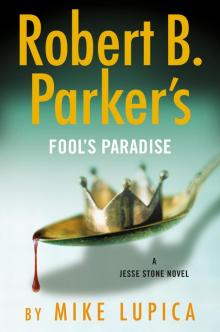 Fool's Paradise
Fool's Paradise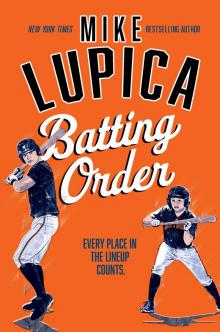 Batting Order
Batting Order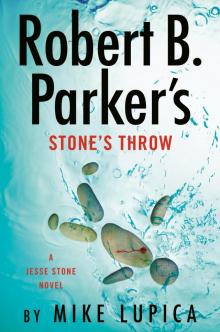 Stone's Throw
Stone's Throw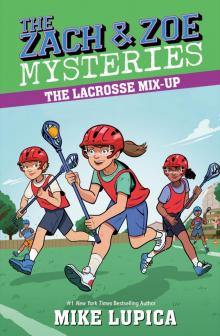 The Lacrosse Mix-Up
The Lacrosse Mix-Up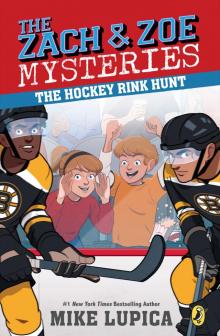 The Hockey Rink Hunt
The Hockey Rink Hunt Payback
Payback Triple Threat
Triple Threat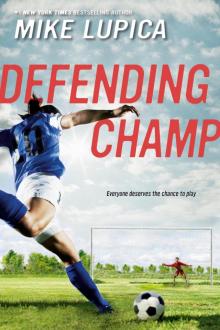 Defending Champ
Defending Champ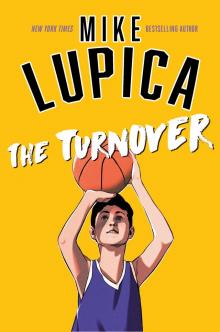 The Turnover
The Turnover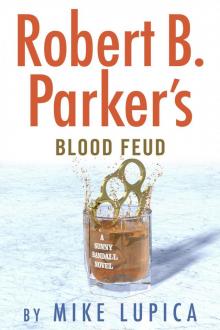 Robert B. Parker's Blood Feud
Robert B. Parker's Blood Feud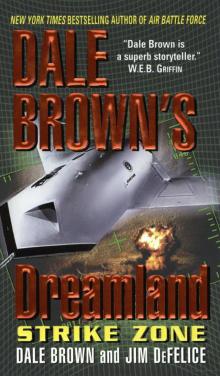 Strike Zone
Strike Zone Hero
Hero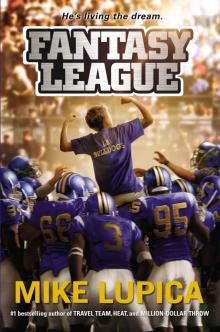 Fantasy League
Fantasy League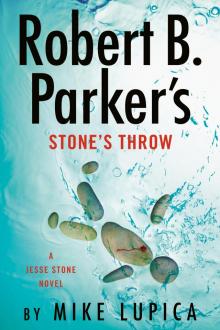 Robert B. Parker's Stone's Throw
Robert B. Parker's Stone's Throw The Big Field
The Big Field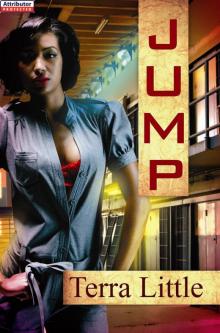 Jump
Jump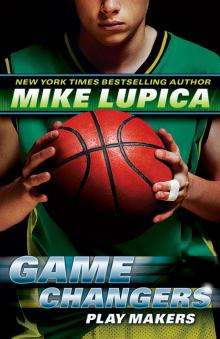 Play Makers
Play Makers The Underdogs
The Underdogs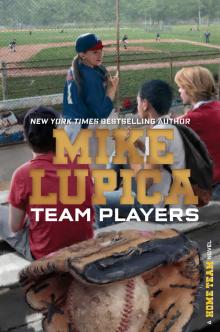 Team Players
Team Players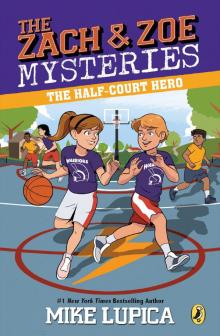 The Half-Court Hero
The Half-Court Hero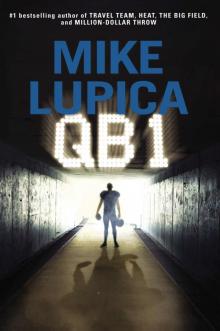 QB 1
QB 1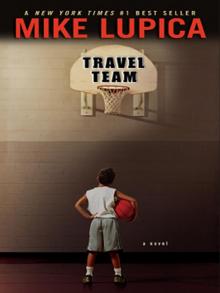 Travel Team
Travel Team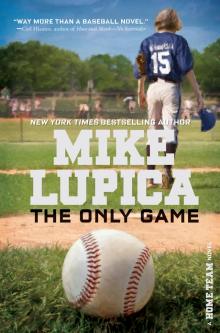 The Only Game
The Only Game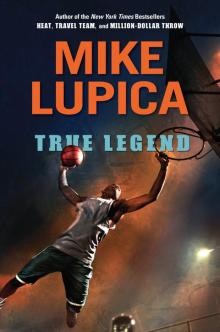 True Legend
True Legend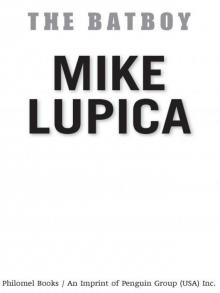 The Batboy
The Batboy Hot Hand
Hot Hand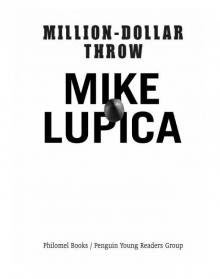 Million-Dollar Throw
Million-Dollar Throw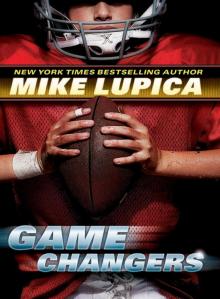 Game Changers
Game Changers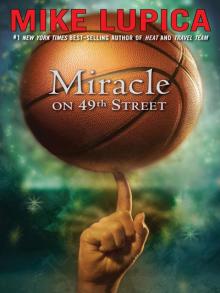 Miracle on 49th Street
Miracle on 49th Street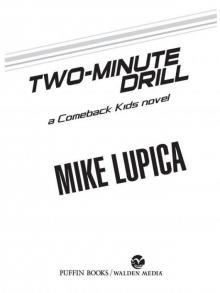 Two-Minute Drill
Two-Minute Drill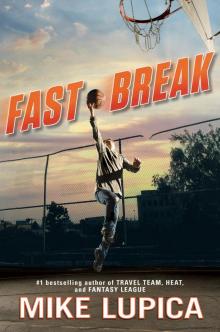 Fast Break
Fast Break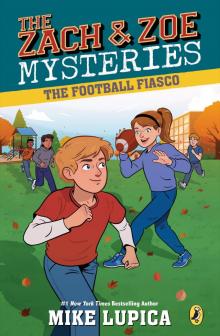 The Football Fiasco
The Football Fiasco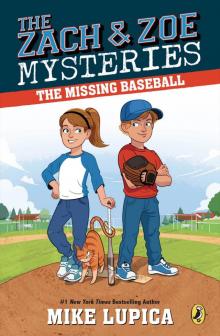 The Missing Baseball
The Missing Baseball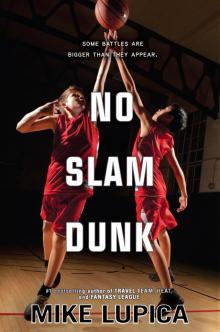 No Slam Dunk
No Slam Dunk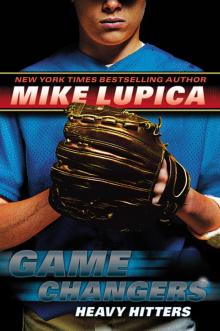 Heavy Hitters
Heavy Hitters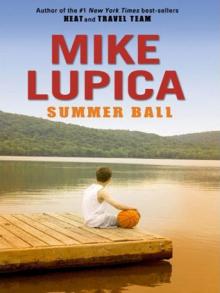 Summer Ball
Summer Ball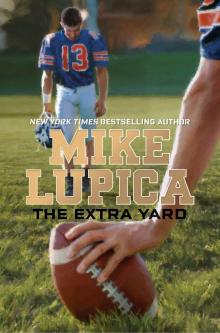 The Extra Yard
The Extra Yard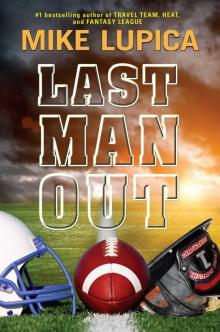 Last Man Out
Last Man Out